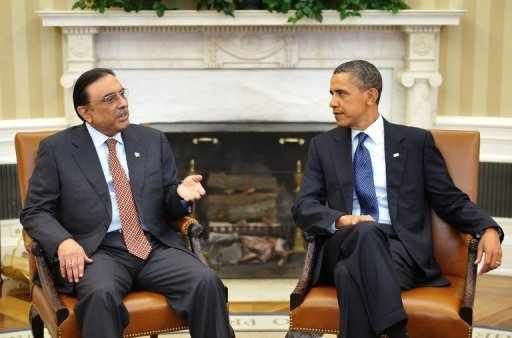Editorial
US Predicament in Southwest Asia

These attacks have strained relations between Washington and Islamabad. 2011 was the worst year in relations between the two countries. In January, a CIA contractor killed two Pakistanis in Lahore who were allegedly trying to rob him. In May, the US, apparently without informing Pakistani officials, killed Bin Laden, an act which was considered by Pakistan's military as a humiliation. And in November, US air strikes killed 24 Pakistani soldiers near the border with Afghanistan. Pakistan has asked for an apology for this attack, but the US has only expressed regret over this "accidental" incident.
Following these developments, Pakistan decided to prevent NATO supplies from using its territory to cross into Afghanistan. An apparent reason for this attitude was Pakistan’s demand for much higher transit fees. However, it is clear that Pakistanis have been very much disappointed with American military actions within their territory which at times have occurred without their prior knowledge.
US-Pakistan relations took a turn for the worse when US Defense Secretary Leon Panetta used a strong language against Islamabad, stating that the US’ patience over Pakistan’s refusal to act against “safe havens” of Taliban and the Haqqani militant network in Pakistan was running out. Pakistan’s Foreign Ministry spokesman strongly rejected Panetta’s assertion on safe havens in Pakistan, branding his remarks as “misplaced and unhelpful.”
It is no secret that it was the United States which helped create extremism in the 1980s to fight former Soviet forces occupying Afghanistan. The CIA’s plan was to utilize Saudi money and Pakistan’s blessing and support to organize extremist elements within Pakistan and Afghanistan to fight the Soviets. After the Soviet withdrawal, these extremists were given the task to counter-balance Iran’s growing influence in the region.
The height of the problem for the US was the 9/11 attacks by al-Qaeda forces. In essence, America was heavily hit by the same forces it had once created. Now, after more than 30 years of close military and intelligence cooperation with Pakistan, the US has reached the conclusion that Pakistan is harboring terrorists. Last September, the then US Joint Chiefs of Staff Chairman, Adm. Mike Mullen, said that the Haqqani network “acts as a veritable arm of Pakistan’s Inter-Services Intelligence (ISI) agency”.
US relations with Pakistan are at their lowest. The main US preoccupation is how Afghanistan will look like after American forces leave there in 2014. If the same extremists who were in control of Afghanistan in the 1990s would be in charge again, then how would the loss of American and NATO forces and billions of dollars spent in Afghanistan be justified? On the other hand, some analysts argue that Pakistan will use Haqqanis and other extremists to create a good base for its influence once the Americans leave Afghanistan.
The US should recognize the fact that the fight against terrorism and extremism should be global. It cannot fight terrorism on one front and at the same time keep a close eye on the activities of others. Terrorism and extremism cannot be divided between good and bad, hence the US decision to negotiate with the Taliban in the hope of defeating al-Qaeda is doomed to fail.

